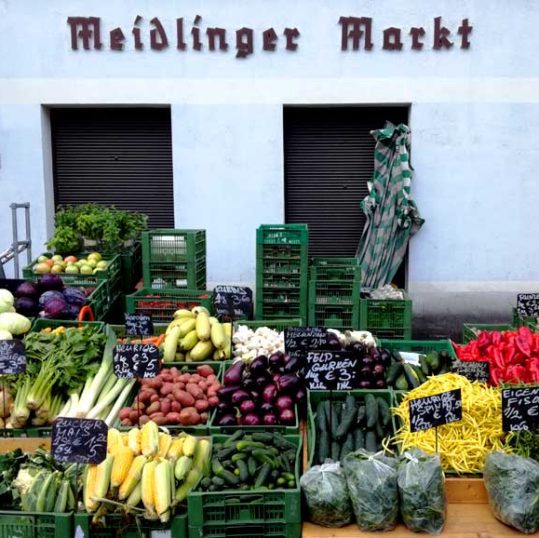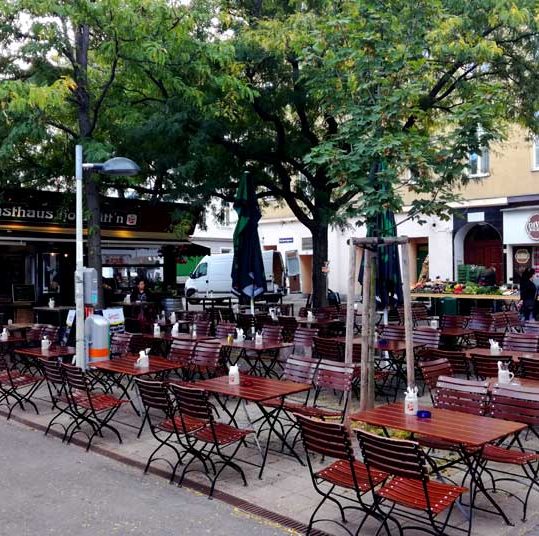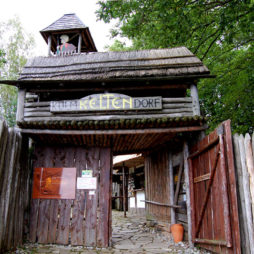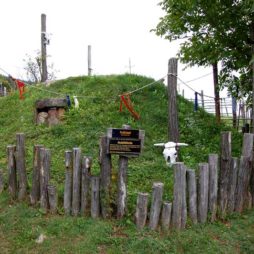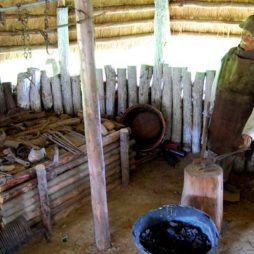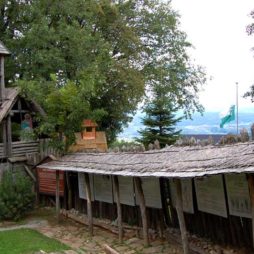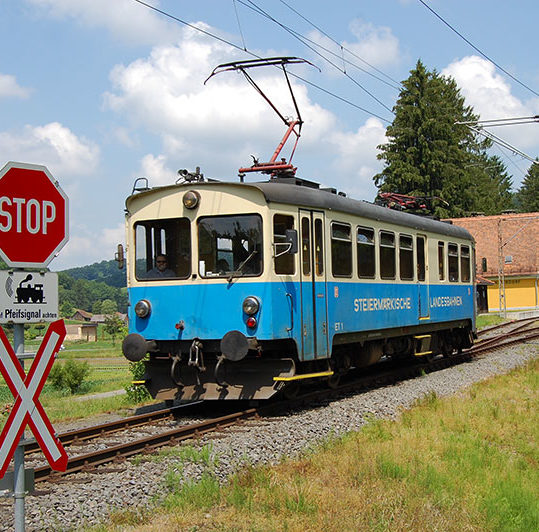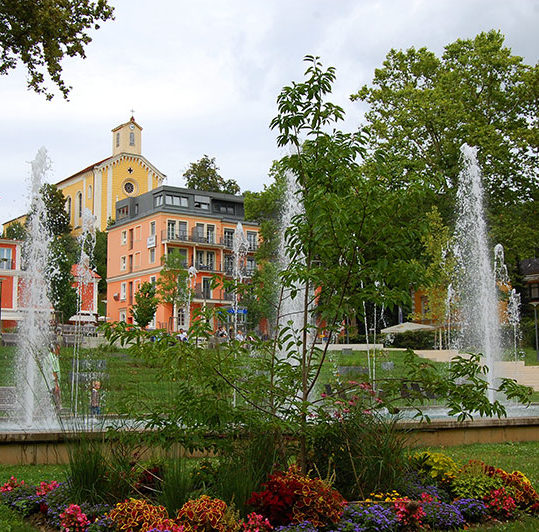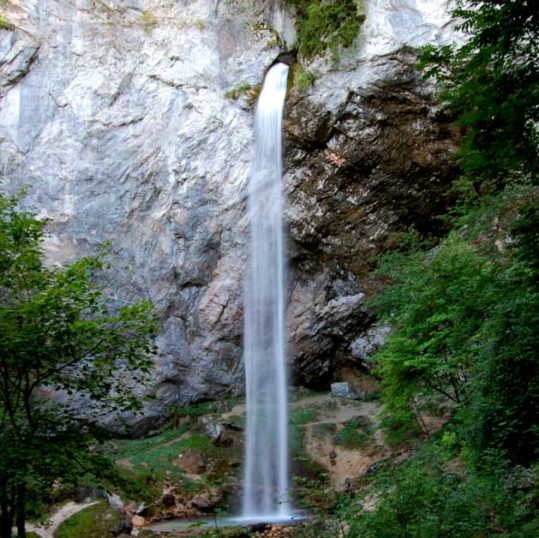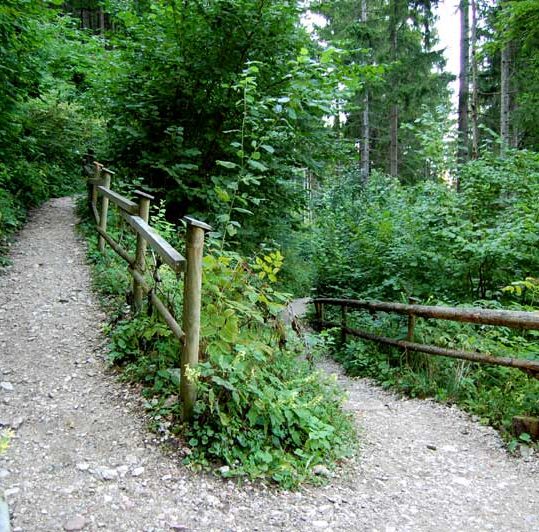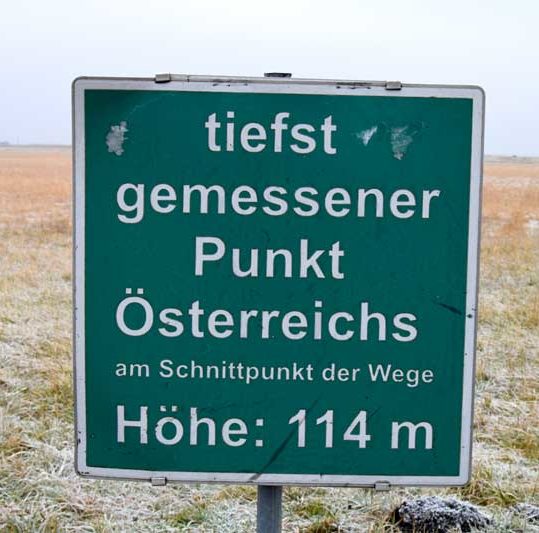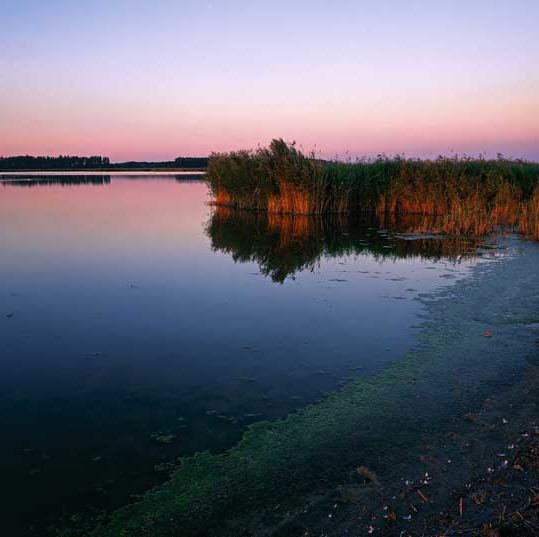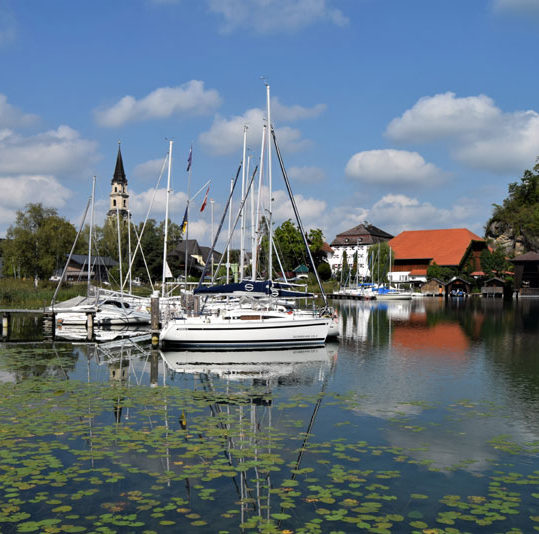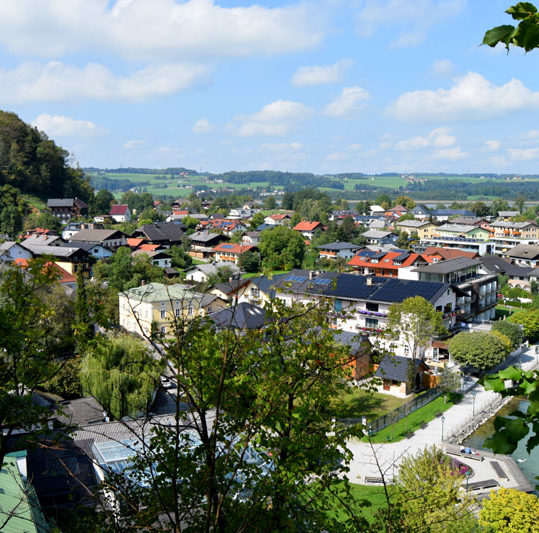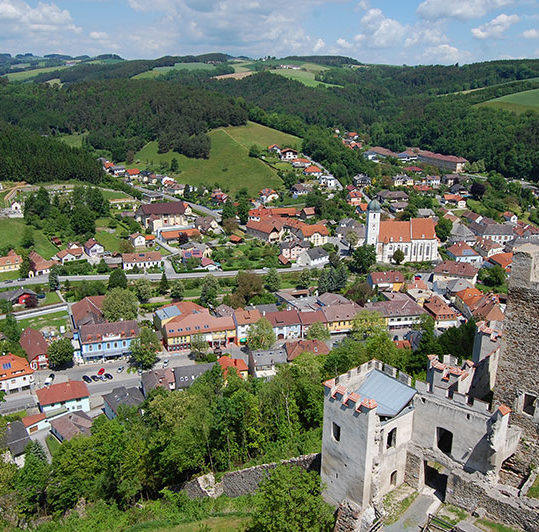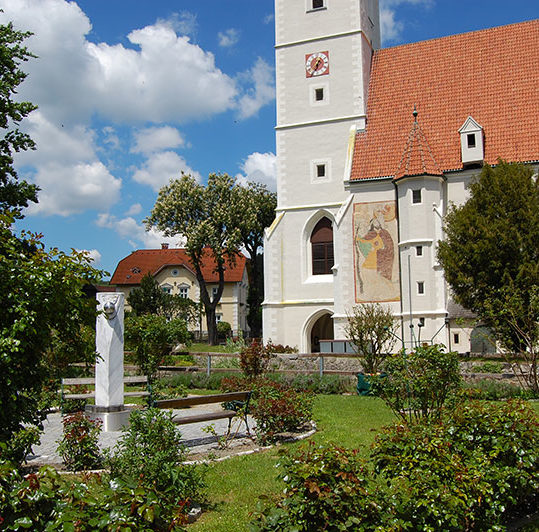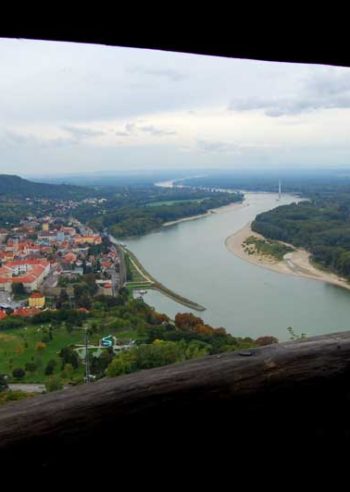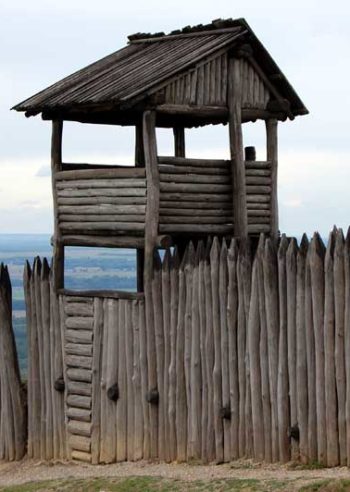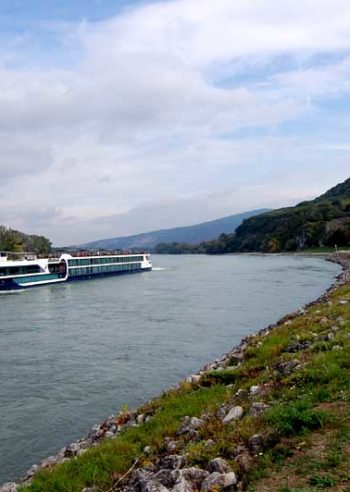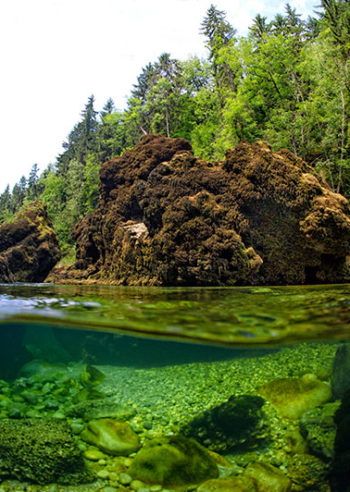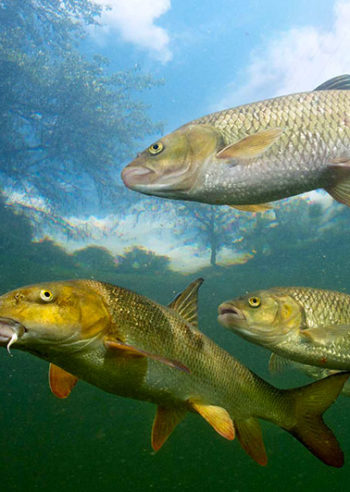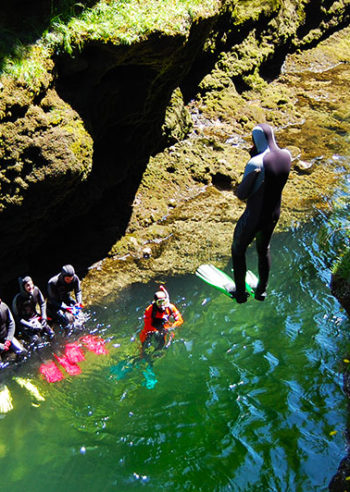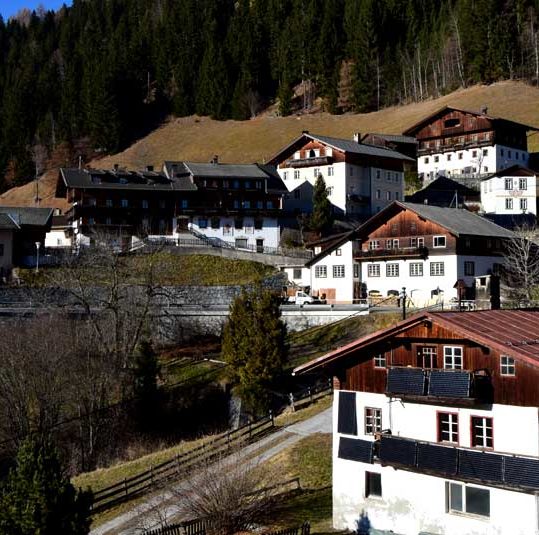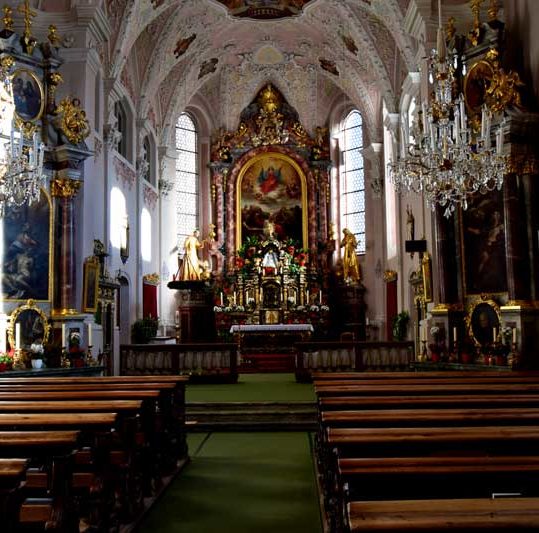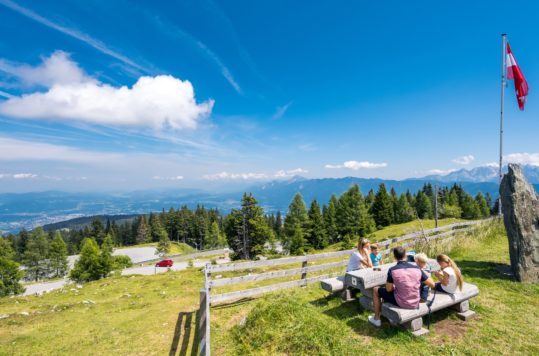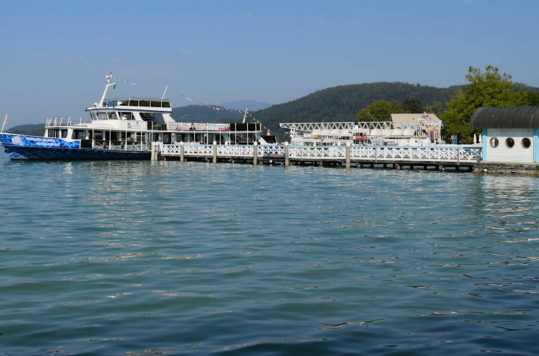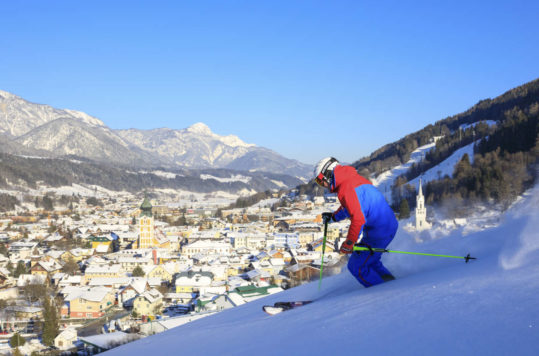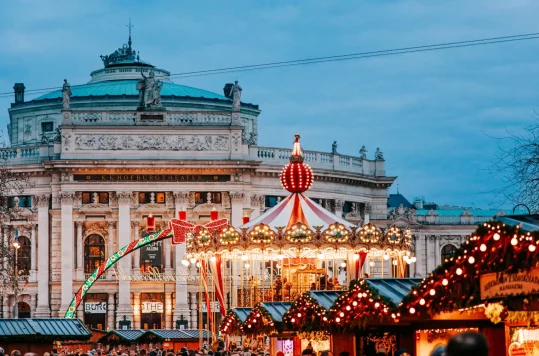Check out these hidden travel gems in Austria that you probably didn’t know existed. To see some of these sights you have to leave the beaten path to find, while others you might even have passed without noticing.
Exploring and discovering new things makes your holiday itinerary much more interesting than just following the flow. These might demand some searching and, even better, trotting off the beaten path. Nonetheless, we want to point you in the direction of a few hidden travel gems in Austria, which are often overlooked but well worth the trip.
Wolf and Cow Playing Backgammon Mural – Vienna
This hidden gem you can find in the 1. District of Vienna. The mural of a cow wearing glasses playing backgammon with a wolf is thought to have been painted in the 17th century. Although there have been many different interpretations over the centuries, the last is that this is a satire on Protestantism. You have to look up at the wall above the ground floor at Bäckerstrasse 12 to see it.
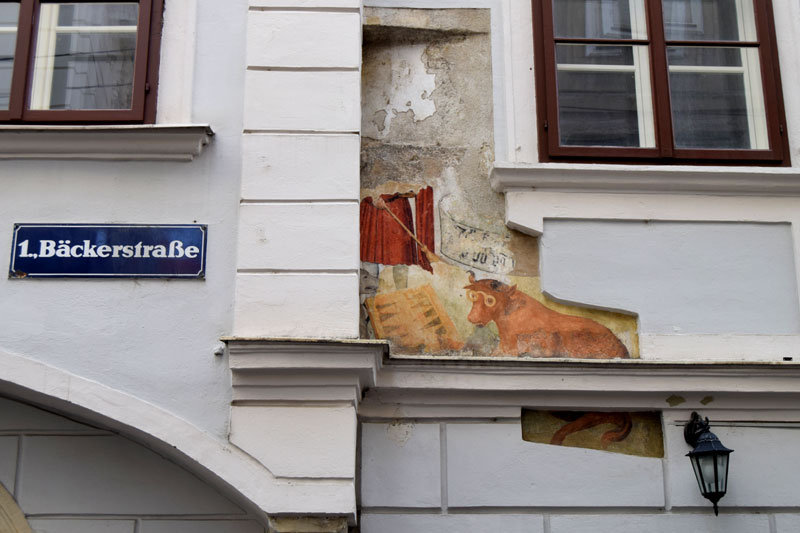
Meidlinger Markt – Vienna
Vienna has several more known markets; however, this small market ( 100 x 50 m) in the 12th district of Meidling is a little gem. Although the Meidlinger Markt is quiet, it has more to offer than it might seem at first glance. There are unusual places with unconventional ideas, international delicatessen stands and chic cafés. Moreover, you will also find obligatory farm produce and a flea market. This is the place to go if you want to hang out with the locals instead of tourists. Visitors can also enjoy live music and cultural events in this historic market square, making it a popular destination for locals and tourists. Find your way with Google Maps.
Tashi Rabten Buddhist Monastery – Vorarlberg
Buddhist monks have established a monastery on a former farm, the Letzenhof, in the hills above Feldkirch. The first monks came as refugees from Tibet in the 1960’s. Its Stupa and the prayer flags, which you most likely have seen in the Himalayas, don’t even look out of place in the mountainous landscape surrounding the monastery. Furthermore, you are welcome to pass by, stay in the temple for quiet meditation or ask a monk for information on Buddhism in general. The Tashi Rabten Buddhist Monastery is a hidden gem of serenity and a great place to take a time out.
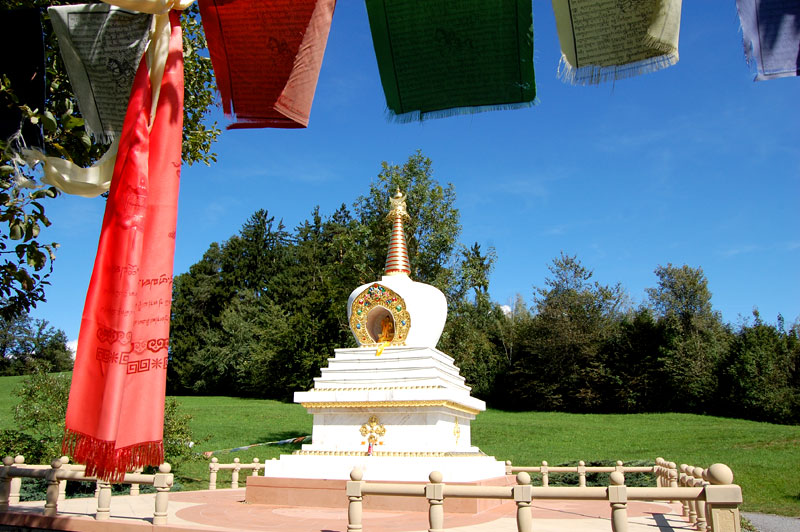
Advertisement
Kulm Keltendorf (Celtic Village) – Styria
In the hills near the small town of Weiz in eastern Styria, you can travel back to the Iron Age and visit a Celtic Village from around 450 B.C. Celtic tribes started to settle down in what today is Austria. Numerous archaeological excavations have revealed how they lived. The reconstruction of a Celtic Village in Styria gives you an insight into the life of the Celts over several centuries. Surrounded by wooden palisades, ten houses, including life-size figures, show you glimpses of daily life in the Iron Age. Hence, this hidden gem of an outdoor museum is a lot of fun for the kids and the grown-ups, and it is all worth a detour. For more info, see the museum website.
Gleichenberger Bahn – Styria
This narrow-track railway is one of the real hidden travel gems. The 21 km stretch between Feldbach and Bad Gleichenberg in southeast Styria is also called the “jungle express” by the locals. Moreover, this is not a museum train but a part of the local public transport in the area, connecting villages to the small town of Feldbach. The electric railbuses take you through a rolling forest and cultural landscape in Steirisches Volcano. Furthermore, the area has many beautiful hiking trails, and you can hop on and off the train at any of the 13 stops along the way. For more info see Gleichenberger Bahn.
Wildsteiner Waterfall – Carinthia
This waterfall is a real hidden gem requiring you to travel a little off the beaten track in southern Carinthia. Nonetheless, what a beautiful sight once you arrive. The winding trail up to the falls is hassle-free for the first two-thirds, but the last third of the 20-minute trip is a bit more tiring. Anyway, with each step, you get closer to the refreshing, cool air from the falls. Seating is provided on the viewing platform at the Wildensteiner waterfall. Here, you can relax and enjoy the view of the waterfall that is projected from the vertical cliff and falls 54 meters. There is parking, toilet facilities and a café onsite.
The lowest point in Austria – Burgenland
OK, a small sign in a flat field near Apetlon might not be a mindblowing experience. Nonetheless, Austria is famous primarily for the fantastic hiking and skiing in the Alps. Nevertheless, there are a few flat spots in the country, such as in the easternmost state, Burgenland. I bet far fewer have taken a selfie at this spot than at the highest point in Austria, Grossglockner Mountain. At 114 metres above sea level, this is the country’s lowest point, making it a hidden gem that deserves a visit. Not far from Apetlon, you will also find a salt lake (Lange Lacke) with buzzing bird life. The surrounding steppe landscape and Austria’s largest lake, the Neusiedler See, offer you excellent hiking, biking and boat trips.
The Salzburg lake district (Salzburger Seenland)
The Salzburg Lake district, also known as Salzburger Seenland, boasts stunning natural landscapes with crystal-clear lakes surrounded by picturesque mountains. Start your lakeside adventure by strolling around the small town of Mattsee, located on the lake’s southern shore with the same name. You can easily spend a couple of hours lakeside, taking in some of the nicely preserved historic buildings, visiting the small Bajuvaren homestead, and seeing how the local tribe lived in 450 AD. You get the best views from the rocky hill by Schloss Mattsee. Along with the other lakes, you can enjoy a wide range of water activities such as swimming, boating, and fishing and explore charming lakeside villages and historic castles.
Kirchschlag in der Buckligen Welt – Lower Austria
The Bucklige Welt region has many idyllic villages and towns, all distinctive and new to visitors. If you only have time to visit one of them, we recommend Kirchschlag. Located in the far southeast of Lower Austria, the small town with just under 3000 inhabitants offers historic buildings and a medieval castle, which thrones on a hill above the city. Around the main square (Hauptplatz), you will find shops, cafes and restaurants. Take the time to stroll over to the park at the church as well.
Braunsberg – Lower Austria
Braunsberg Hill at the eastern end of Austria (Lower Austria) is a brilliant place to enjoy the views of the surroundings. Moreover, not only does the summit offer a comprehensive view in all directions, but there is also a reconstructed Celtic rampart on the hill. Already 7000 years ago, humans discovered that the Braunsberg was the ideal place for a settlement. Excavations on the hilltop, levelled in prehistoric times, revealed traces of the Copper Age around 4500 BC. The Celts, who built a hilltop settlement up here, surrounded the summit plateau with a wall of fortifications, ramparts, and watchtowers. You can hike up here from Hainburg an der Donau or travel by car as there is a large car park on the site. The nearby historic town of Hainburg is situated on the Danube River.
Snorkelling in the river Traun – Upper Austria
To enjoy one of Austria’s most spectacular hidden gems, you have to jump into a river. Austria is known for its clean waters and crystal-clear rivers, so it’s worth while to experience the country below the surface as well. Of course, you should wear a neoprene dive suit, a diving mask, fins, and a snorkel. Fish and crayfish can be observed close up in a fabulous underwater world. Snorkelling the river, Traun can be done by anyone who can swim.
Maria Luggau – Tirol
The small village with about 200 inhabitants is one of Austria’s really hidden travel gems. Traditional Tyrolean log houses, with aged timber walls built on whitewashed stone walls, give the place a rustic look. Far south, the western part of the Lesach Valley is located in Osttirol and the eastern part of Carinthia. Since 1591, it has been a monastery on the site. Moreover, the pilgrimage church is also worth a look with its rich and magnificent decorations. Lesachtal is one of the most remote valleys in Austria, and here, you rarely meet large hordes of tourists. For more info: Lesachtal Tourism

